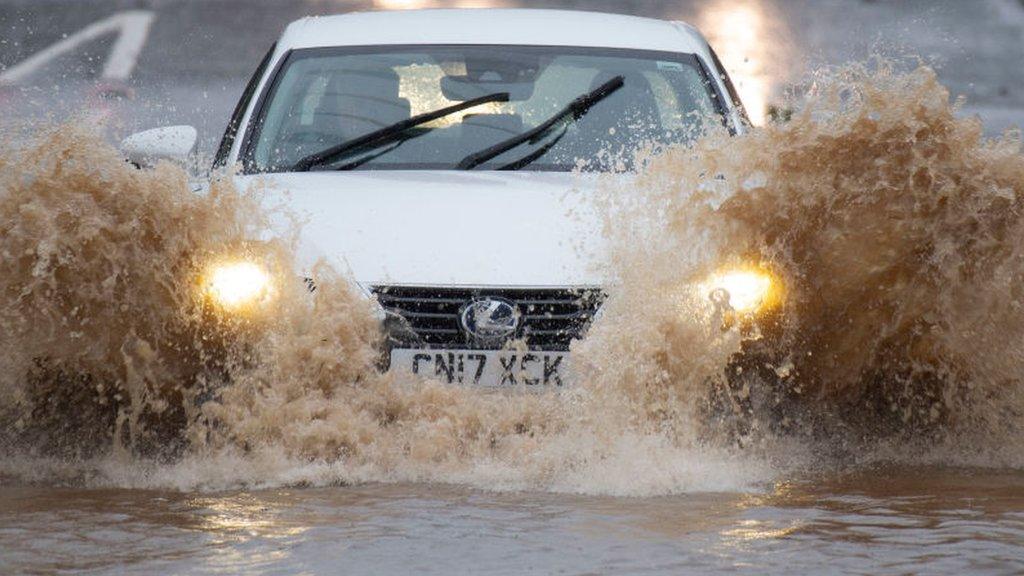Climate change could be as bad as Covid - Wales' top doctor
- Published
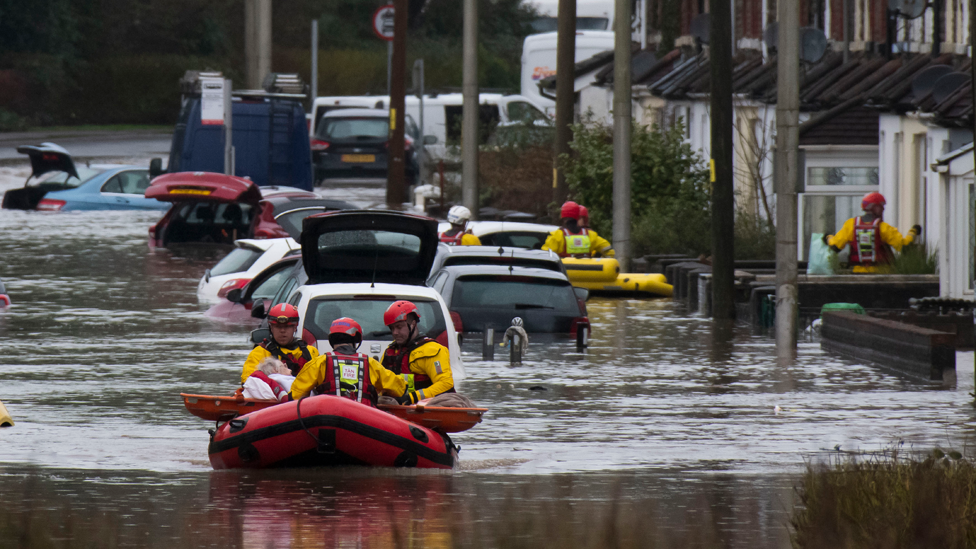
Storm Dennis flooded parts of Wales in February 2020
Climate change could be as devastating as Covid for some communities, Wales' top doctor has warned.
Dr Sir Frank Atherton said rising temperatures were likely to pose a "serious health risk" to the nation.
As was the case in the pandemic, the chief medical officer warned Wales' poorest areas could be hardest hit.
The Welsh government said it had a plan to mitigate the worst impact of climate change and protect the most vulnerable.
"We know the pandemic has disproportionately affected the most deprived areas in Wales and had the greatest impact on our ageing population," said Dr Atherton, in his annual report., external
"We must do everything in our powers to ensure climate change doesn't have similarly devastating consequences."
Scientists have warned that extreme weather events are likely to be more frequent in the future as a result of climate change.
In the past couple of years, Welsh communities have suffered the consequences of Storm Dennis, Storm Arwen and Storm Christoph.
Rising temperatures are also causing grass fires to be larger and to burn for longer.
A grass fire in Machen, Caerphilly county, burned for five days in 2021. Some claimed the flames were close to their homes and black smoke blew over their homes.
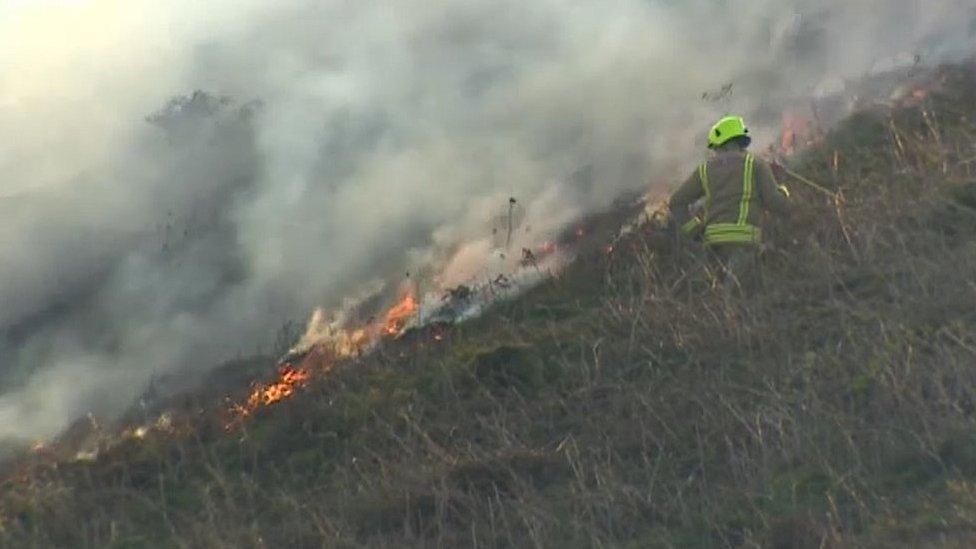
The grass fire above Machen in April 2021 was not the first - there was another major blaze in 2015
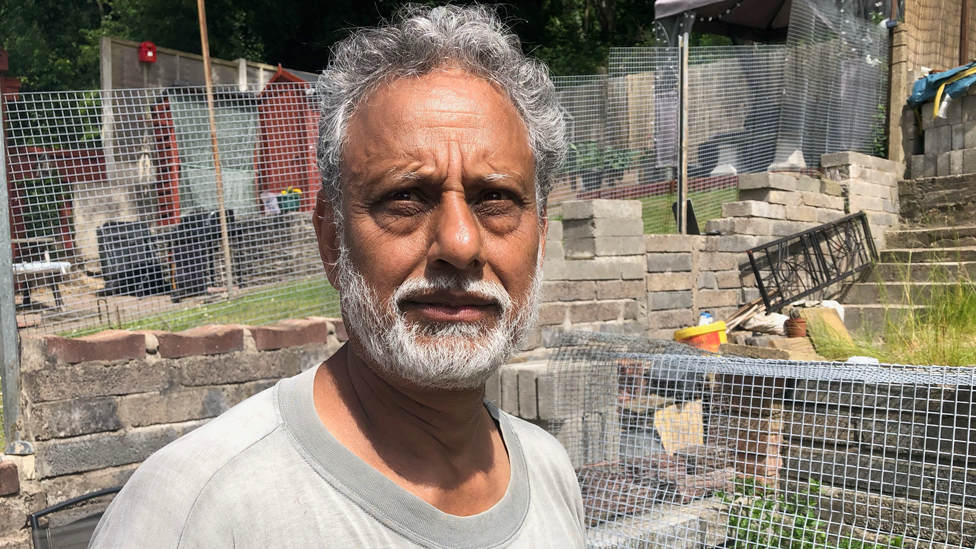
Baghitar Katavada is worried about the affect on people's health of more grass fires
Baghitar Katavada's home backs on to Machen mountain and he watched the blaze.
"Some people were panicking but I could see the flames were quite far up the mountain but the smoke was bad," he said.
"The older people were a bit worried about the smoke because some of the people have asthma so it could be bad for them.
"This was the second worst fire on the mountain I can remember. Maybe the worst one was in the late 1970s but this one last year lasted for a long time, maybe like a week."
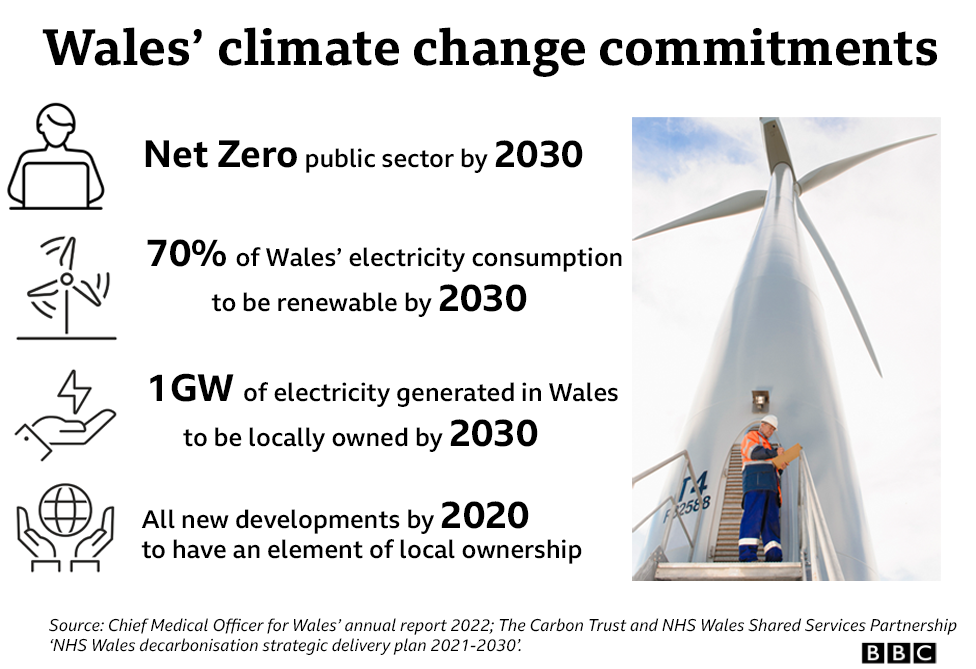
Dr Atherton said that rising global temperatures were having a big impact on diseases and their transmission.
"It leads to an environment where pandemics are more likely to happen but that's just one of the consequences we need to guard against," he said.
"Covid isn't done with us yet but there will be other diseases coming along. We need to prepare and be resilient as communities for those and dealing with climate change is part of that solution."
Dr Atherton said as well as reducing the sources of harmful greenhouse gases, people and organisations needed to understand and make changes to respond to the likely impacts of climate change.
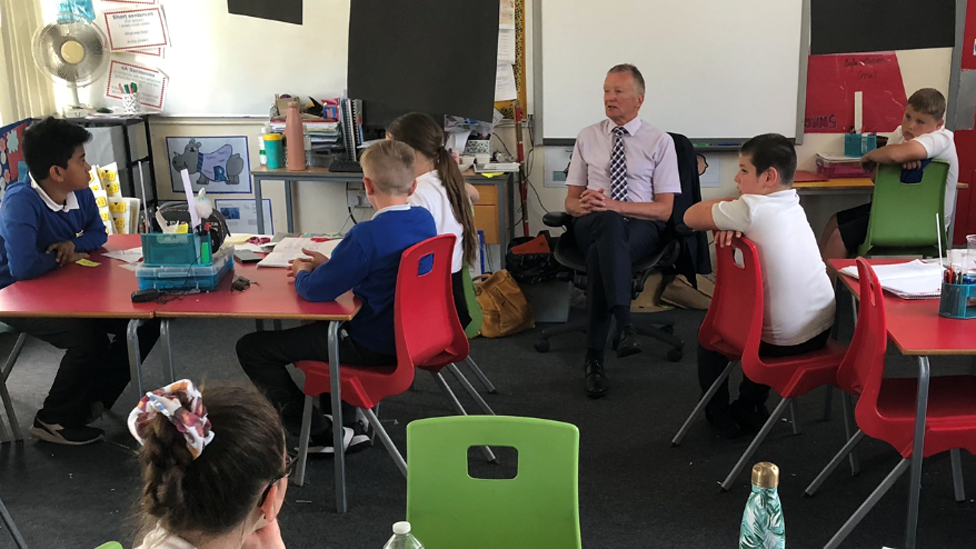
Dr Sir Frank Atherton took questions from pupils at a primary school in Newport
Initiatives include the Eco-Schools programme, which involves pupils in coming up with ideas for environmental improvements.
At Somerton Primary School in Newport, Dr Atherton answered questions from Year 5 pupils about some of his biggest concerns about climate change.
He said air pollution was one and was of particular concern to officials at Public Health Wales as it was increasingly seen as a contributory factor in respiratory disease deaths.
Climate Change Minister Julie James said Dr Atherton was "raising the alarm" on how climate change would directly impact public health.
"Our ambitious plans to achieve a net zero Wales and decarbonise the NHS have put us on a path to mitigate the worst impacts of climate change and protect our most vulnerable communities from bearing its brunt," she said.
"But this requires action from us all. Only by working together in a Team Wales effort can we achieve a healthy, happy and green Wales for our future generations to enjoy."

EXPLORE ANGLESEY'S RICH WILDLIFE: Iolo explore Wales’ biggest island by land and sea
ICONIC WELSH PEOPLE, PLACES AND THINGS: Kiri unearths the best clips from the BBC Wales archive

Related topics
- Published7 June 2022
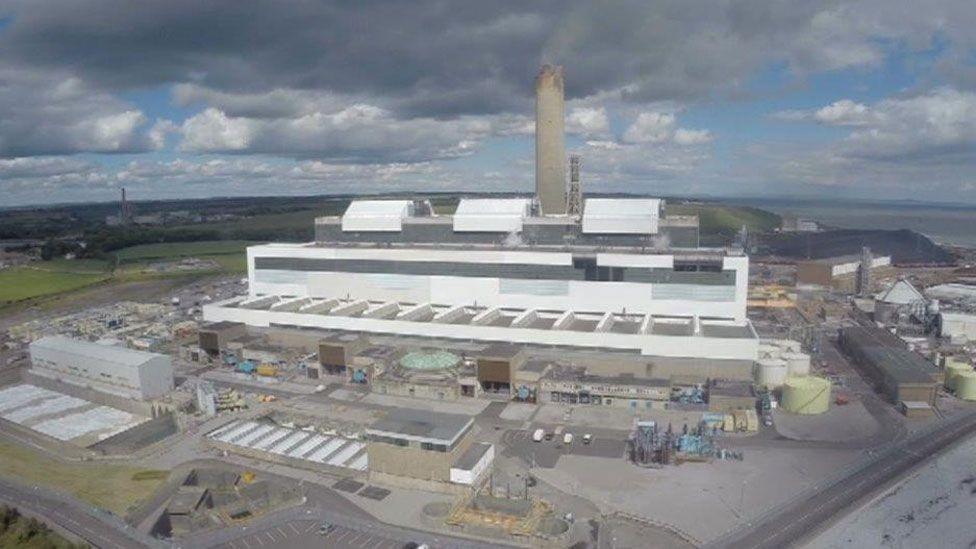
- Published31 October 2021
